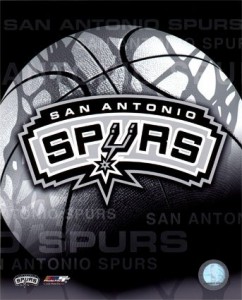 Next time you want a lesson in improving operational efficiency and effective leadership, you might want to consider turning on ESPN. Between stories of players being suspended for night club brawls and on-court scuffles, you might hear a mention or two of the San Antonio Spurs and how they’ve managed to become the winningest pro franchise in North American professional sports over the last decade and a half without so much as a smudge on their permanent record.
Next time you want a lesson in improving operational efficiency and effective leadership, you might want to consider turning on ESPN. Between stories of players being suspended for night club brawls and on-court scuffles, you might hear a mention or two of the San Antonio Spurs and how they’ve managed to become the winningest pro franchise in North American professional sports over the last decade and a half without so much as a smudge on their permanent record.
When looking at the Spurs, a few numbers really stand out.
- In 2010, the Spurs won 61 games and spent about $1,298,000 per win. That’s about $500,000 less than Los Angeles and Boston, who ended up with 57 and 56 wins respectively.
- Since 1997, the Spurs have a 69.6 winning percentage, the best percentage of North American professional sports over the same period.
- 4 championships since 1998, the second highest total in the NBA over the same period.
The Spurs front office, from Head Coach Gregg Popovich to general manager RC Buford, have made an art of operating efficiency and assembling teams that are perennially poised to make title runs.
Bethlehem Shoals, a sports writer for AOL News shrewdly observed the “vague Spurs culture” that is bandied about by writers looking to easily write off the franchise’s success is not entirely accurate. A team does not just get a culture, Shoals writes. A culture – whether it’s in an office, on the hardwood or on the bench – is a result of purpose.
The Spurs set out to create a team of players with integrity who also know how to get the ball in the hole. In order to create a successful team, you must know who you’re looking for. This is the only way to ensure that your employees fit into the company culture and are able to put some points on the board for your team. Hold your players (employees, if you’re tired of the sports analogies) to higher standards and they will deliver higher performance. That’s Lesson #1:
Know who you’re looking for before making any hires.
The Spurs are also one of the most well-coached teams in the league. Gregg Popovich is coming off a season in which he received his second Coach of the Year Award. Much of the team’s coachability is due to Popovich, but with the Spurs, nothing is ever that simple. Duncan, the team’s captain and de facto superstar, takes the special kind of verbal abuse that only exists between coach and player without batting an eyelash. He simply makes the adjustment and moves on. No ego. No problem. The effect of this humility is to show the other players that egos have no place on the team. Simply do your part to make the team better. That’s our Lesson #2:
Leadership should come from the top and trickle down. Set the example.
Finally, the Spurs front office has acted as a proving ground for young executives in the league. Popovich and general manager RC Buford have invested their time and talent into the people who work in the organization and it has set them up for success. Danny Ferry, a former Spur player, is now Director of Basketball Operations. This type of leadership and investment in people pays huge dividends in gaining respect even if it ends up coming from a competitor. As Sam Presti, former assistant general manager of the Spurs and current GM of the Oklahoma City Thunder said “As Popovich would say, ‘Everyone has to get over themselves and put the organization and team first.’ The endurance of (the San Antonio) organization is uncommon. I feel fortunate for the opportunity to have been a small part of it.” This leads us to Lesson #3:
Invest in your people. Set them up for success.
The key to everything the Spurs have done has been personnel. Whether you’re looking to assemble a championship team or just build a successful business made up of winners and free of losers, the Spurs are an organization to mimic. By taking the time to choose the right people to fill the various roles on your team, you can set your organization and the individual players up for success.
